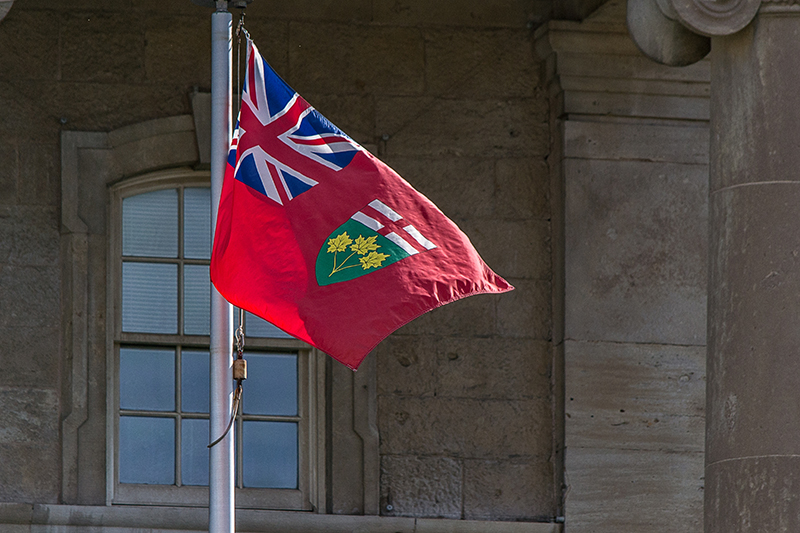

News
Benefits & Pensions
Compensation
Health & Safety
Ontario hints at action on paid sick leave amid barrage of criticism
 (Adobe Stock)
(Adobe Stock) By Shawn Jeffords and Paola Loriggio
TORONTO — Premier Doug Ford’s government said Tuesday it was considering a paid sick-leave program for essential workers amid warnings from its own science advisers that hospitals were “buckling” under the weight of COVID-19.
Public health experts and labour groups have been saying for months that COVID-19 is spreading in workplaces, with essential workers bearing the brunt of the third wave of the pandemic.
In a scathing statement, the Ontario COVID-19 Science Advisory Table said Tuesday the province is now facing “the most challenging health crisis of our time.”
“Our hospitals are buckling. Younger people are getting sicker. The disease is ripping through whole families,” the group said, calling for stronger measures to control the pandemic.
A year of COVID-19 has illuminated the urgent need for paid sick days
The warning came as Toronto and Peel Region said they would temporarily close businesses with recent outbreaks in an effort to protect tens of thousands of essential workers.
Both public health units said they would order businesses with five or more linked cases in the past two weeks to shut down for 10 days. During that time, workers would have to self-isolate.
The Ford government has frequently refused to offer sick days to essential workers, saying a program run by the federal government already exists.
Implementing paid sick leave in Canada not as simple as it sounds
In the last two days, Ford’s Progressive Conservatives have shot down Opposition motions on the issue of paid sick days and the closing of more non-essential businesses. But in a sudden change of course, Health Minister Christine Elliott said Tuesday the government was looking into the possibility of a provincial paid sick day program.
“It was apparent yesterday … that (the federal Liberals) weren’t making any amendments to their sick benefits program and so those gaps still remain,” Elliott said in the legislature. “That is what we are going to be addressing.”
Premier in isolation
Late Tuesday, Ford’s office said the premier was isolating in Toronto after a member of his staff who was in close contact with him tested positive for COVID-19.
The statement said the premier has tested negative and will follow all public health advice for close contacts.
It said Ford will continue leading his government’s response to the COVID-19 pandemic while in isolation, including briefings with officials and communicating with the public.
Peel Region’s top doctor urged employers ordered to shut down to provide paid sick leave to their staff, “in the absence of legislated paid sick days.”
Toronto’s public health unit said it will issue its order by Friday, while Peel said businesses could be told to close as early as Friday, and those affected will be contacted directly before they are publicly identified.
Peel said health-care businesses, first responders, critical infrastructure, and emergency childcare will be exempt from closure. A full list of businesses not impacted will be provided.
Opposition party leaders said inaction by the province had forced Toronto and Peel to take steps to protect essential workers.
Vaccinating essential workers
Meanwhile, the Ontario COVID-19 Science Advisory Table urged the province to accelerate the vaccination of essential workers, offer them paid sick days, close more non-essential workplaces and restrict movement within Ontario.
The group also said that “inconsistent policies with no clear link to scientific evidence are ineffective” in fighting COVID-19.
Members of the group have publicly criticized the government restrictions of outdoor activities, including last week’s order to close all sports and recreational facilities.
“Policies that discourage safe outdoor activity will not control COVID-19 and will disproportionately harm children and those who do not have access to their own green space, especially those living in crowded conditions,” the group said in its statement.
Rob Steiner, spokesman for group, said its members felt an urgency to put forward a straightforward “playbook” on what they feel must be done immediately — backed by science — to get the pandemic under control.
“All sorts of people have been frustrated that a lot of this stuff we’ve had has not adhered to science,” Steiner said. “We wanted to clarify and put in one place everything that we really feel that needs to be done at this stage.”
Meanwhile, the Ottawa Police Service announced late Tuesday that it would no longer maintain a constant presence at interprovincial crossings at bridges and ferries.
The measure followed restrictions announced Friday by the Ford government to limit interprovincial travel.
In a release, Ottawa police said it will instead deploy officers on a rotating schedule of checkpoints at all interprovincial crossings in the city until the provincial order expires.
“The operational changes announced today are designed to better ensure the health and safety of all, to minimize delays and/or hazards for travellers, and to ensure essential workers can get to their places of employment on time.”
COVID-19 case counts remained high Tuesday – with 3,469 new cases and 22 more deaths reported – as residents aged 40 and older became eligible to get the Oxford-AstraZeneca vaccine at pharmacies and doctors’ offices.
The province said 20 Shoppers Drug Mart locations in the Greater Toronto Area would soon start offering vaccinations to people aged 40 and older 24 hours a day, seven days a week – starting on Wednesday.
At a small downtown Toronto pharmacy, Klaus Mienkamper – a father of two – filled out his paperwork as he prepared to get the shot.
“If it will help life get back to normal as I knew it, then I will do whatever it takes,” he said. “I just want to get on with it.”
With files from Colin Perkel
Print this page
